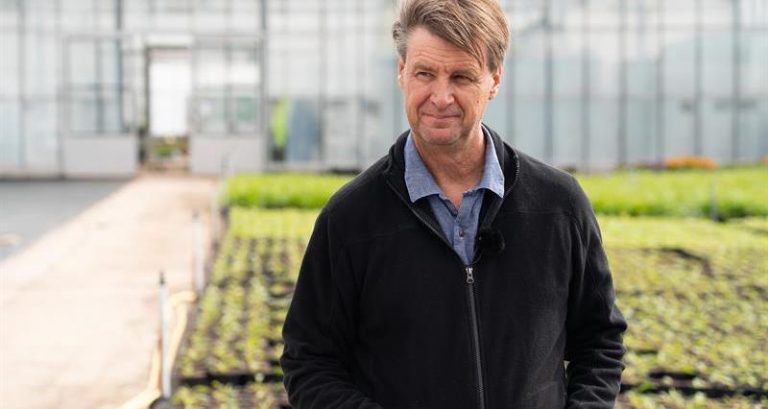Work is well underway on the redevelopment of Rotherham Markets as contractors begin fabrication works in the outdoor market and underground carpark.
Rotherham Council’s Cabinet Member for Jobs and the Local Economy, Cllr Robert Taylor, joined Henry Boot Construction’s Managing Director, Tony Shaw, and Head of Operations, Ian Gresser, on the site to have a look at how the Rotherham Council project is progressing.
Currently, the former outdoor market space flooring has been stripped while downstairs, works have begun to strengthen the foundations of the outdoor market space.
Preparation work for demolition has also begun on the former Drummond Street shops – also known as the Guardian Centre buildings. These are set to be demolished in autumn 2024 to make way for a brand-new library building.
Following the demolition of the Drummond Street shops, the outdoor market canopy will be removed in stages. Covering over 3,500sqm of the market, removing the structure will be a very complex operation. A crane will be moved on site during the removal.
The Indoor Market remains open throughout the redevelopment, with a range of stalls and products available from local traders. Outdoor markets, such as the Tuesday Market, have been relocated to Effingham Street while the project is under way.
Henry Boot Construction, the contractor for the Rotherham Market redevelopment, was onsite when ground was broken in October 2023. Since then, they have been working with teams at Rotherham Council to progress the project.
Henry Boot Construction’s Managing Director, Tony Shaw, said: “We are pleased to see the Rotherham Markets project progressing. We’re looking forward to continuing to work closely with the Council and breathing new life into this area of the town centre.
“Creating high-quality, vibrant urban spaces is part of our DNA. Having led on several of the region’s major regeneration over recent years, we have witnessed first-hand the transformative impact investments like this one can have – helping to boost community pride and identity, increase footfall and grow the local economy.
“We pride ourselves on leaving a positive legacy in the places where we work. To do this we have committed to deliver significant social value outputs by utilising a local supply chain wherever possible, local site-specific employment, and delivering multiple training and educational initiatives.”
Rotherham Council’s Cabinet Member for Jobs and Local Economy, Cllr Robert Taylor, said: “The Markets redevelopment is part of the Town Centre Masterplan, and to see people on site and spades in the ground shows that the plan is becoming a reality.
“The redevelopment of the markets is a complex project which will not only breathe new life into our community, but also provide economic opportunities for our local businesses. Working with Henry Boot, the markets redevelopment will provide an accessible, enjoyable space for all which celebrates our diverse community and heritage.
“Rotherham Market continues to remain open for the public with the fantastic range of outdoor markets now taking place in the town centre, so I encourage residents to continue to support our local traders until they are in their new facilities.”
Once works are complete, visitors will benefit from a refurbished indoor and outdoor covered market, extensive public realm, a new modern and accessible central library and improved links to the town centre and college.
Rotherham Council received funding from the government’s Future High Street Fund to pay for part of the improvements at the market with additional funding secured from the Council and the South Yorkshire Mayoral Combined Authority.












